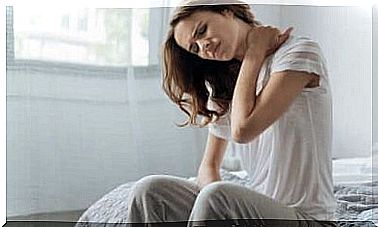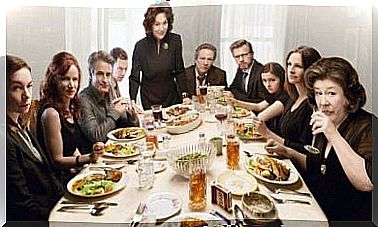Helicopter Fathers And Agenda Mothers, Parents Who Run Their Children’s Lives

We call helicopter fathers and schedule mothers those parents who intend to control and organize their children’s lives completely. They act with the best of intentions, but they undoubtedly despise children’s freedom.
A helicopter father or an agenda mother constantly checks the children’s tasks, assignments, exams and activities, not forgetting anything or failing to schedule every minute of their child’s life.
They are the guardians of each information and each academic (and extra-academic) obligation of the child, generating in them a dynamic of authentic dependence. As a result of this, it is more difficult for children to learn to take responsibility for their activities, obligations and interests.

Helicopter dads and schedule moms that leave their kids empty
With this attitude of overprotection and the desire to create a bubble with the characteristics described, we end up affecting the “growth” of children who do not know themselves, are unable to manage their emotions and ignore their needs and ambitions.
This relationship between parents and children becomes toxic, as it places children in an overprotective bubble that tries to be the most resistant of armor, when in reality it is the best seed of insecurity that we can plant in them. Furthermore, these children are very spoiled, cannot tolerate frustration and boredom, and only know how to play the passive role they were used to.

The origin of the term goes back to 1969, when Haim Ginnott wrote in his book “ Between Parent & Tennager ”: “ my mother flew over me like a helicopter” . This phenomenon ended up spreading socially and we reached the point where many parents blame ( unfairly ) their children’s bad grades on the teachers.
Helicopter fathers and mothers schedule:
- They make decisions for their children in all areas of their lives.
- They watch every move and try to please their children in everything and immediately.
- They resolve their children’s conflicts and always try to provide them with solutions.
- They speak in the plural: “We have to study this topic a lot!”, “So many tasks that passed us!”, etc.
This obsessive need to have everything under control ends up being devastating for parents, who end up exhausted. They try to offer their children a life of perfection, love and care, giving them all the resources and preventing children from making the mistakes they should make at this age.
What happens is that reality ends up imposing itself and the castles in the air collapse. This kind of relationship ends up asphyxiating. Both parties end up frustrated and exhausted, causing major complexes and emotional problems.

The hyperpaternity that ends up reflecting depression and anxiety
According to several studies, the implementation of this overprotective parenting style has disastrous consequences in the short, medium and long term: depression, stress and anxiety. A price that will be paid not only by the children, but also by the parents.
This deterioration comes from the neglect of three basic emotional needs: the feeling or perception of autonomy, the feeling or perception of competence, and the feeling or perception of feeling connected with someone, especially in adolescence and with peers. Thus, everything that limits emotional development and growth brings devastating consequences on a personal and relational level.
Children should be brought up with care and attention, basing the amounts of each on common sense. We cannot meddle in the various areas that make up their life or take responsibility for their obligations, as they will grow up feeling useless, incompetent and dependent, and this is precisely the opposite of what we want.
Illustration by Karin Taloyr and Claudia Tremblay








